Thanks for subscribing to Unnatural Heritage! It’s my birthday this week, and to celebrate, I am humbling asking readers to consider sharing my newsletter with one person in their life who they think might enjoy it. Maybe that’s no one, in which case, examine your life! Thanks for reading, and on with the show :)
Good morning, earthlings.
Welcome back to the Amoeba: the sentient cluster of lint and fuzzy stray bits lurking in the belly button of Unnatural Heritage. If you’re new here, the Amoeba is the looser, more personal companion to my regular posts.
Today we’re partaking in some shameless navel-gazing because—guess what—it’s my birthday!
Coincidentally, today also marks the longest I have ever survived on Earth (*waits for thunderous applause*). How enormously skilled I am at existing! And getting better every day, I might add!
While I acknowledge that birthdays conjure mixed feelings for many, I am someone who truly believes in them. I enjoy their invitation to engage in rituals of reflection and aspiration. To selectively gather the people I love, take stock of the passing years, and breathe in the smoke of a wish newly freed.
It is important that I share that my first memory of birthday wishes is one of irrevocable loss. I was three. The cake: Vanilla. It was a work of art too precious for any museum, its unblemished surface pulsating with the dynamic athleticism of the Power Rangers. As I sat admiring it, my mother came over with a tiny box. Before I could scream, she plunged a wax knife directly into the bowels of poor Kimberly (the pink one, and my favorite). I shrieked for her to move it, and she obliged—but not before sinking two more daggers into the flesh of my just dessert.
I was told they were devices of desire, equipped with the power to grant my most intimate wishes. Their tiny fire scared and electrified me. With a throng of aunts and uncles around me, I seized my moment. A deep inhale. A powerful whoosh. Exhilaration. Applause. Smoke.
But readers: I had fumbled it. In the heat of the moment, under the social pressures to perform, I had forgotten to articulate a wish. My candles sat silent, astonished at my mistake. Swirls of empty silver, lost to the wind.
I would wait an entire third of my life to be granted another opportunity such as that. But when the time finally came, you can BET I was prepared.
*****
“A dream is a wish your heart makes, when you’re fast asleep.”
- Cinderella, famous princess and noted scholar of Freudian psychology
*****
The opportunities in life to cast a wish are appropriately rare, given the power of the magic involved. We are granted a window annually at our birthday, or on the rare occurrence of a shooting star. The observant may find chance in a stray lash, or seasonally in a late field of dandelions. Perhaps the most common way to make a wish is to find a well or fountain designated for that purpose, though this may require a trip to Italy, or—even more unlikely these days—the mall.
The wishing well approach, which typically involves drowning tiny imprints of dead presidents in shallow pools of chlorinated water, has a long and storied history. In Norse mythology, the god Odin cast his own eye into the well of Mímisbrunnr in exchange for all-seeing wisdom. In Celtic tradition, eyeballs were sensibly replaced with buttons or coins—small offerings meant to garner favor among the spirits who dwelled within the waters.
Today, this method of wish-making is especially popular among delicate young boys and sun-scorched tourists. It remains a suitable approach for anyone harboring a hidden desire deep beneath their surface.
*****
In the drowsy dark caves of the mind
dreams build their nest with fragments
dropped from day’s caravan.
- Rabindranath Tagore
*****
I recently visited the Luray Caverns in western Virginia—a stunning complex of limestone caves carved into the dolomite of the Blue Ridge Mountains. A hundred feet below the fudge shop, there is a mile-long trail that takes visitors past some of the most remarkable and ancient cave formations anywhere in the world. Giant stalagmites erupt from the ground, straining to reach the stalactites above them. In rare moments, the two kiss—congealing into colossal, forty-foot-high columns. These columns, which grow at a geologic rate of less than a cubic inch per century, are millions of years in the making.
The gummies kicked in somewhere around Dream Lake—a crystal pool whose perfect stillness offers a mirror to the craggy heavens above. In that moment, both visions of the world felt real. I had fallen through the looking glass. Towards the center of the cavern, we found Pluto’s Ghost: a monolith of pure white calcite. The god of the underworld himself.
Further along the trail, tucked between the billowing flowstone, was a peculiar altar to human aspiration. Bathed in eerie green light, The Wishing Well is the cavern’s deepest pool, and a repository for the desires of all who pass through. Six feet deep when empty, the Well slowly shallows over time, as coins accumulate like sediment atop its bed. By the end of a single year, the Well can boast nearly three feet of currency. To maintain it, the coins are cleared out annually, the proceeds donated to organizations like the Juvenile Diabetes Research Foundation or the American Cancer Society.
Since the 1950s, The Wishing Well has accumulated over one million dollars in petty change—a towering sum, accumulated through the slow, steady drip of calcified wishes. Humble requests for fortune or good health, or the success of the pills you bought off Instagram to treat early male pattern baldness, taken twice daily but often forgotten.
To dislodge this annual deposit of human longing, a team of workers first drains the pool, easing removal and preventing the workers from drowning as the pool slowly deepens. The contents are shoveled into wheelbarrows which are then carted off to the bank. Most years, the local football team is called in as reinforcement.
Having learned to not waste a good wishing opportunity, I fumbled around in my pockets for change. But alas, I am not my father. As a modern man, light on my feet, I prefer not to jingle. It is a lifestyle I now recognize keeps many young people from achieving their dreams.
I cycled through the alternatives. Some folks, pressed for change, had elected to throw paper bills instead. How extravagant! They floated about like lost souls in the blue haze, slowly pickling in its slightly acidic waters. It was a strip club in Hades.
Despite frequenting the occasional drag show myself, I—a good digital native—had no cash on me either. In order to partake in the fiscal exchange now customary between contemporary humans and their gods, I would have to offer my credit card.
I searched for a swipe machine. Maybe there was a Square chip embedded in the limestone? But alas, no luck. Perhaps I could skip the card like a rock, letting it bounce upon the pool’s surface before sinking to its depths? Yes, this seemed plausible. As I geared up my wrist, a brilliant woman behind me asked if there was a Venmo. Yes, of course! I could simply Venmo my wish!
I tucked the credit card back into my pocket, admonishing myself for being so silly.
*****
The needy traveller, serene and gay,
Walks the wild heath, and sings his toil away.
Does envy seize thee? crush th’ upbraiding joy,
Increase his riches and his peace destroy,
New fears in dire vicissitude invade,
The rustling brake alarms, and quiv’ring shade,
Nor light nor darkness bring his pain relief.
One shews the plunder, and one hides the thief.
- Samuel Johnson, The Vanity of Human Wishes
*****
Earlier this week, the New York Times published a 54-minute polemic calling for the abolishment of the penny. Denounced as “worthless” artifacts, pennies are a value sink for the U.S. Mint, each requiring over three cents to manufacture. Despite this fact, billions of them are still produced every year, to meet the demands of a populace that has effectively stopped using them.
The demand for pennies remains so high because nearly two-thirds of them never return to circulation, instead lurking beneath couch cushions or hiding in backseat cup holders. Most of the pennies minted since 1793 have completely disappeared—the rest are kept captive in glass jars and piggy banks. Americans hoard so many pennies that if even a modest amount suddenly returned to circulation, it would become “logistically unmanageable.” As the article points out, a mere $100 in pennies weighs over 55 pounds. (Benjamin Franklin, you skinny queen!)
Through a series of fiscally responsible arguments, the author makes a solid case for retiring the penny in its physical form. “Canada has already done it!” she proclaims. An example of “reverse Midas’ touch”, pennies transform the otherwise real value of zinc and copper into something essentially worthless. (Pluto, the ruler of the underworld and god of precious minerals, is quite often confused with Plutus, the Greek god of wealth.)
But what the author fails to recognize is that pennies—eternally banished to the lowest reaches of monetary value—have led their own rebellion, instead staking claim in the realm of the invaluable.
Despite arguments otherwise, pennies are essential tools of transaction, allowing us to exchange words with the gods of our future selves. For many people, a wish is the first articulation of a vision greater than the present. They are an act of creation, charged with spiritual and psychological potency. In a world defined by drudgery and strife, pennies thus act as articles of faith, as talismans of desire. In pennies, we find tiny tokens to a brighter future.
Yeah yeah, I’ve heard the warnings about wishful thinking. It is a fool’s errand—I know. But maybe it makes sense, in a country as irrationally optimistic as America, where the mythos of the American Dream still powers a ceaseless motivation, that the U.S. Mint would continue to produce pennies. Rather than a financial sink or sign of bureaucratic inertia, perhaps we understand them as a stubborn, symbolic investment in our collective aspiration.
*****
In her book Aspiration: The Agency of Becoming, Agnes Callard outlines the distinction between ambitions and aspirations. Ambition deals with discernible outcomes: the desire for a higher-paying job, or a more robust set of friends. The outcomes of ambitions are generally clear, even before you achieve them. Aspiration, Callard says, is something much stranger.
Since my first ill-fated wish, I have made a concerted effort never to fail again. When I turned 16, I wished for a car. When I turned 19, I wished for a boyfriend. As I ascended through my twenties, my wishes matured alongside me. At 21, I wished for a garden, and at 22, a stable job. At 25, I wished for the health of my father.
On my 30th birthday, surrounded by old friends from grad school, I was suddenly confronted with my original trauma. As the candles crackled in front of me, faces beaming all around, I found myself once again unable to articulate what it was that I wanted.
The difference was that this time, I could feel it.
Aspiration, according to Callard, is the process of learning to want more. Not wanting more, per se, but learning to assume the values of the person you want to become. It marks an identity shift—a reconfiguration of current values in exchange for those you someday hope to carry. Aspiration, put simply, is an attunement to your future self in the making.
As I inhaled that day, preparing to make my wish, I felt the space between my cells adjust slightly—as if to accommodate some new reality. For a brief, impossible moment, I was aware that I was embodying a new way of being in the world, previously unknown to me but so familiar in its form. While I couldn’t quite put it into words, I let out a breath infused with the knowledge of its possibility. The news of it shattered the flames before me, sending rumors of its arrival swirling into the air. Carried by delicate threads of silver, it slipped past our heads and out the open door.
P.S. While I did not manage to get a boyfriend when I turned 19, I did lose my virginity on a Cheeto-dusted futon while the spelunking horror movie The Descent played in the background. Now how's that for a cave-themed anecdote!






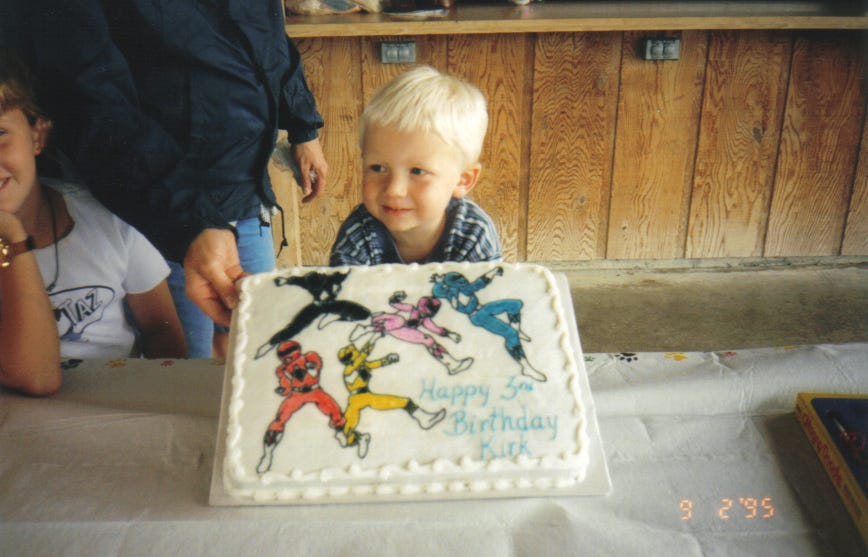
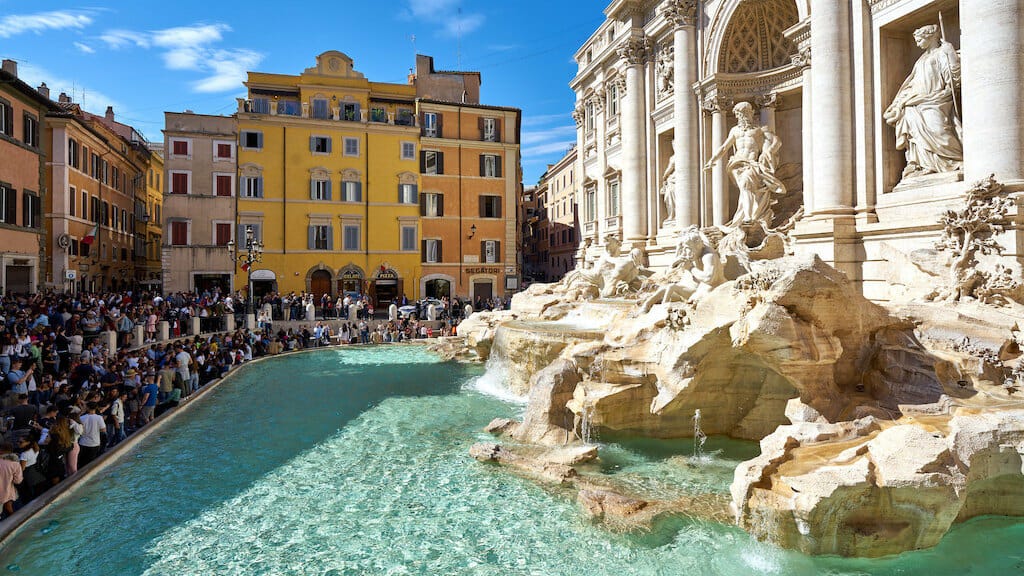
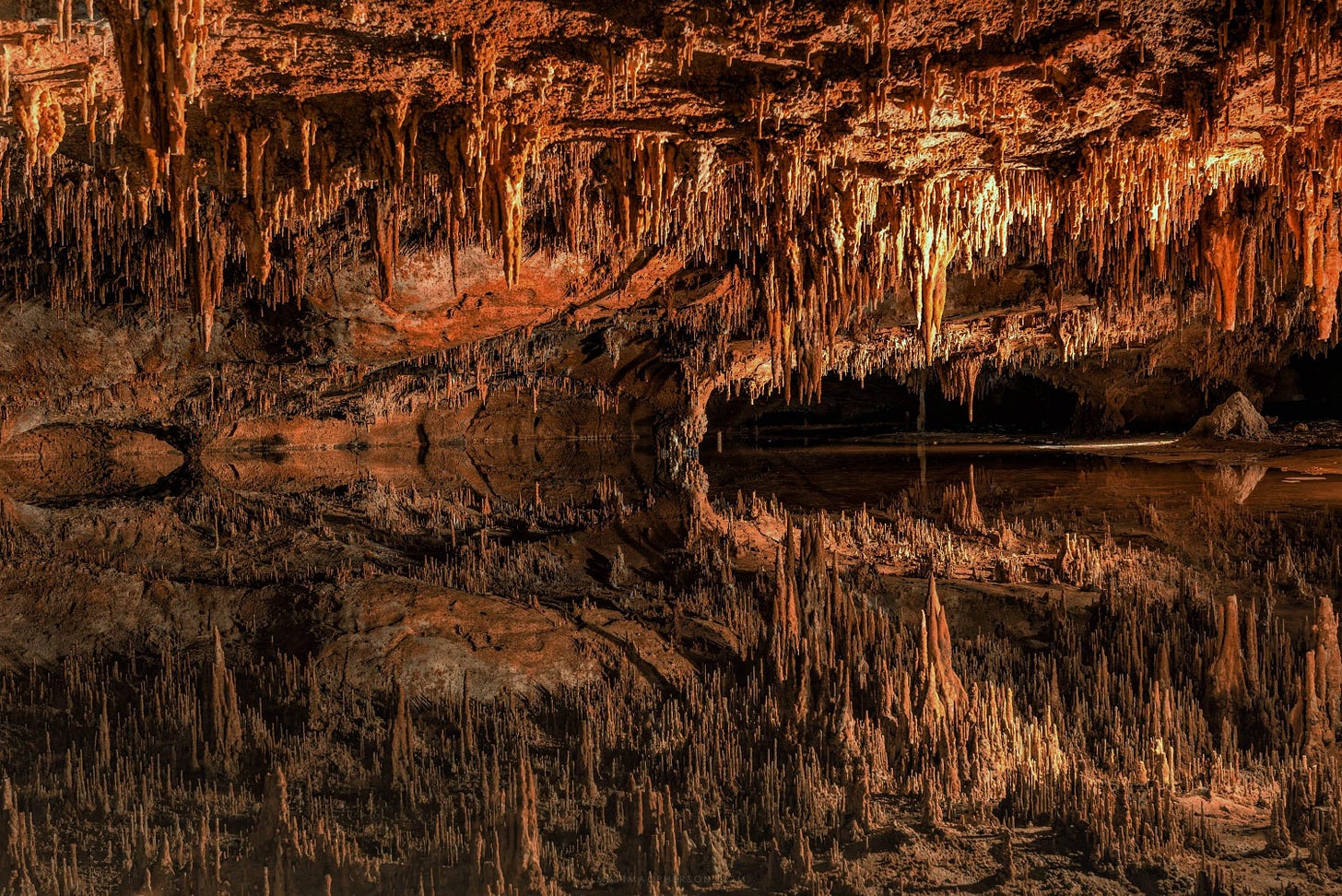


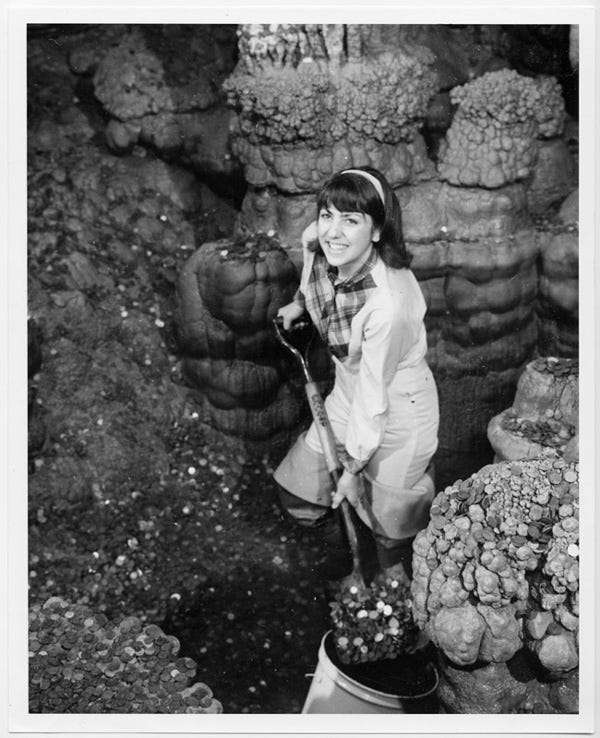


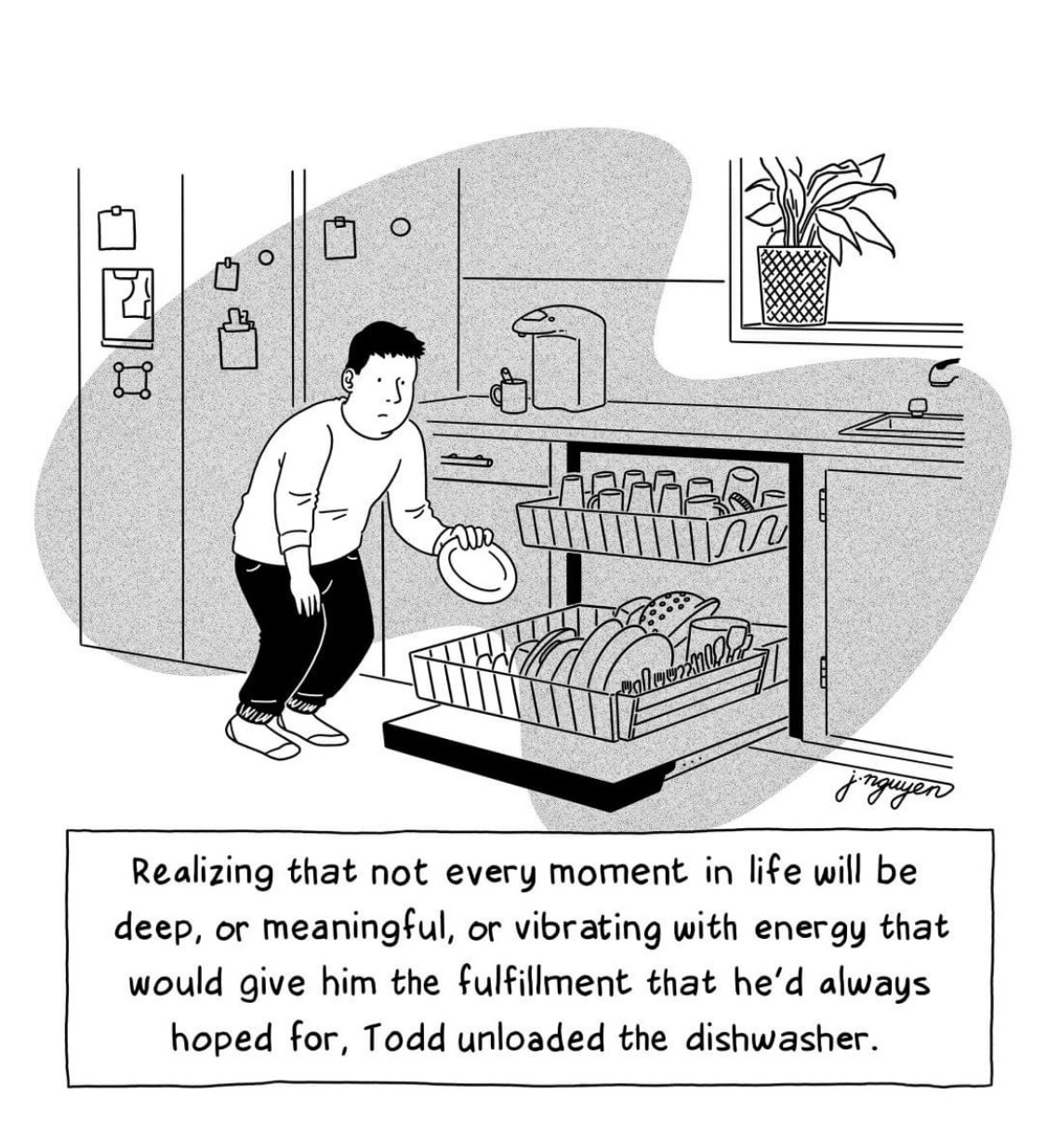
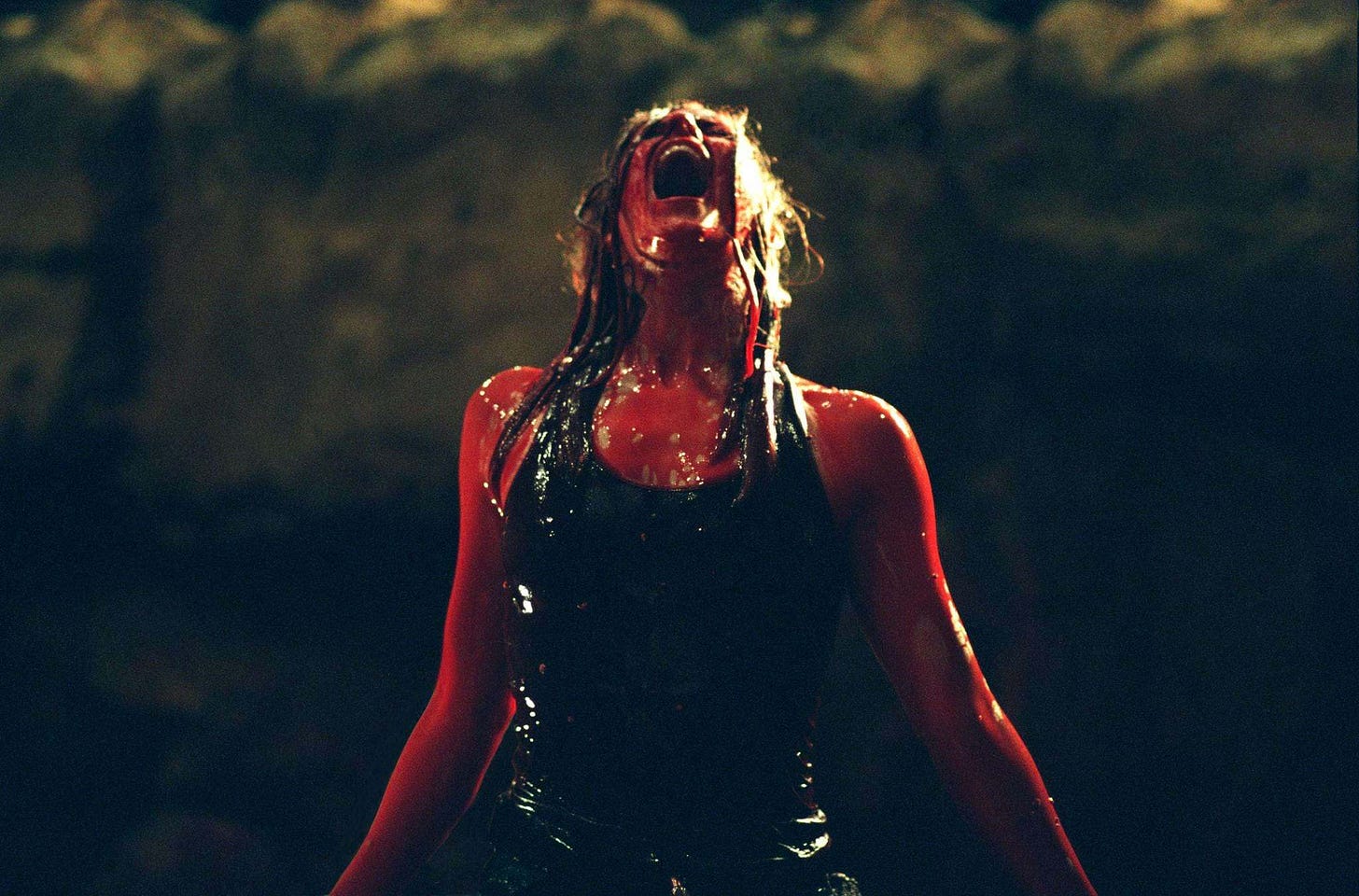
Happy birthday!
I want to order a Wishing Well For Sensitive Boys but your TV commercial forgot to include where I can purchase one. Guess I'll have to build my own. Dodobbird.pixels.com (art site)